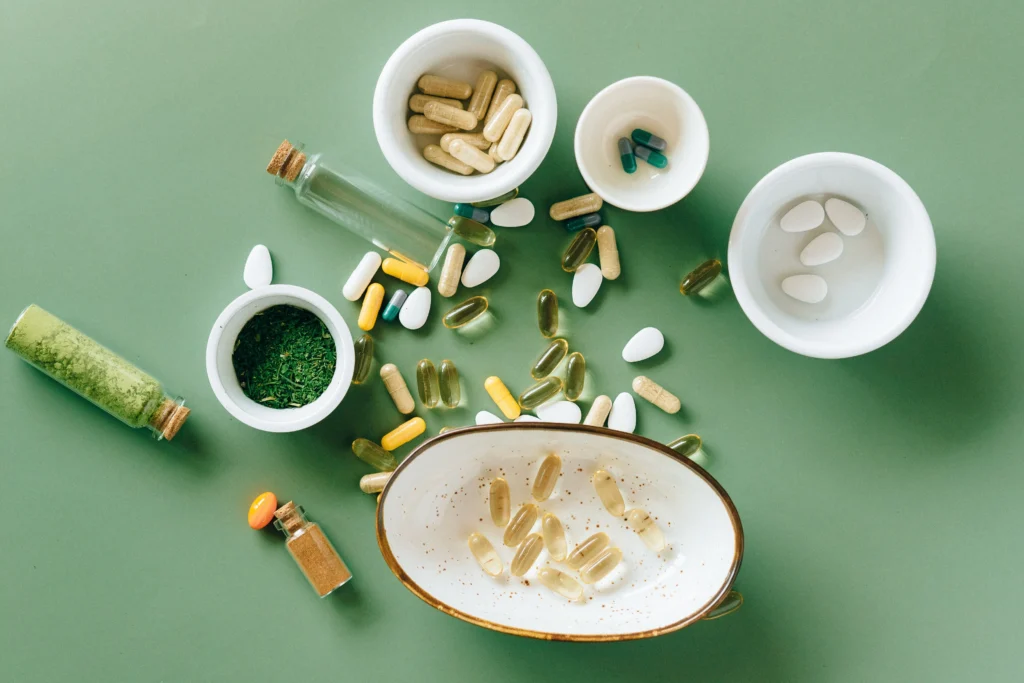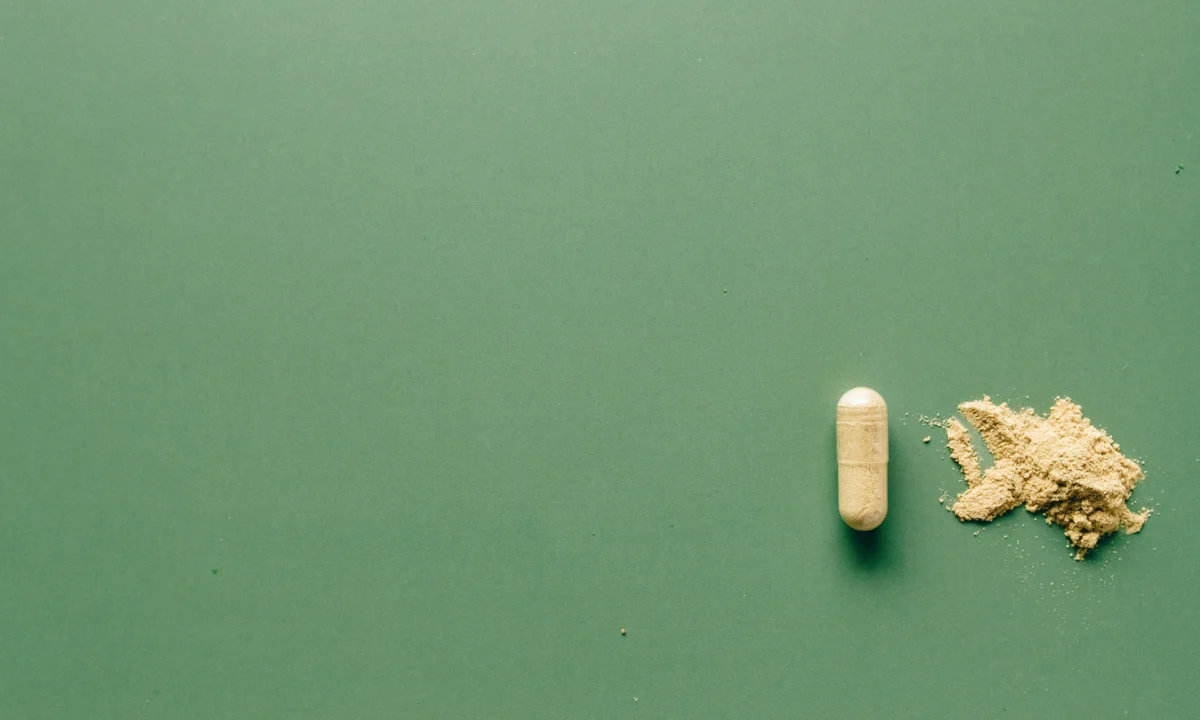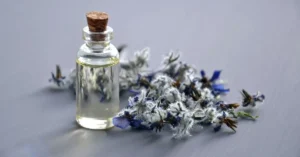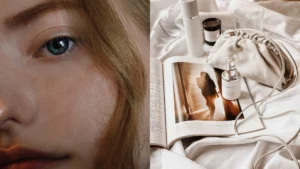Do you want to know about “Can Ashwagandha Cause Acne“? Commonly referred to as Withania Somnifera, this potent herb is celebrated for its numerous health advantages, including stress reduction, cognitive enhancement, and better athletic prowess.
But here’s the twist – can it also bring pesky pimples to the party? Some users have whispered tales of breakouts and skin woes after inviting Ashwagandha into their lives.
In this article, we’re diving deep into the Ashwagandha-acne enigma. Whether you’re Ashwagandha-curious or a seasoned user, understanding potential side effects is key to making an informed choice.
Table of Contents
Can Ashwagandha Cause Acne?
Although ashwagandha is unlikely to be directly related to acne, preliminary research suggests that it may increase testosterone levels, which could link this supplement to an increase in breakouts.
Its active compound, withanolides, has the potential to disrupt hormone regulation and cause acne breakouts. There is, however, no scientific evidence that ashwagandha can cause acne. If a person develops skin irritation or a rash as a result of taking ashwagandha, they should reduce their dosage or stop using it.
What is Ashwagandha?

Ashwagandha (Withania Somnifera) is a popular herb commonly used in traditional Indian Ayurvedic medicine.
It is a small shrub native to India and North Africa and its roots and berries are used for medicinal purposes. In modern times, Ashwagandha has gained popularity as a dietary supplement due to its various health benefits such as reducing stress, improving cognitive function, boosting athletic performance, and supporting healthy immune function. It is commonly used for its adaptogenic properties, which means it helps the body to better cope with stress and anxiety.
Understanding Acne Formation
Acne, a common skin condition, results from intricate interactions between various factors. By comprehending the underlying mechanisms, we can better manage and prevent breakouts. Here’s a breakdown of acne formation:
- Sebum Production: Sebaceous glands produce sebum (skin’s natural oil). Overproduction can lead to clogged pores, a primary trigger for acne.
- Dead Skin Cells: As skin cells shed, they can mix with sebum, creating a plug that blocks hair follicles. This leads to the formation of comedones (whiteheads and blackheads).
- Bacterial Growth: Propionibacterium acnes, a bacterium thriving in clogged pores, can cause inflammation and worsen acne.
- Inflammation: When trapped sebum and bacteria irritate the hair follicle, the body’s immune response triggers inflammation, resulting in red, swollen pimples.
- Hormonal Influences: Hormonal fluctuations, especially during puberty or hormonal disorders, can increase sebum production and contribute to acne.
- Diet and Lifestyle: High-glycemic diets and dairy consumption may exacerbate acne. Stress and inadequate sleep can also impact hormonal balance and skin health.
Personally, I struggled with acne during my teenage years. Hormonal changes and improper skincare habits contributed to frequent breakouts.
Seeking professional advice, I learned to adopt a consistent skincare routine, manage stress, and make dietary adjustments. Understanding acne formation empowered me to take proactive steps towards clearer skin.
The Hormonal Connection

In the realm of skincare and wellness, the relationship between hormones and acne has long been acknowledged. As we delve into the intricate web of factors influencing skin health, an intriguing player emerges: Ashwagandha.
This ancient herb, renowned for its adaptogenic properties, has piqued interest due to its potential to modulate hormone levels, consequently raising questions about its impact on acne occurrence.
Exploring Hormone Modulation: Ashwagandha, scientifically known as Withania somnifera, is believed to interact with the endocrine system, potentially influencing the secretion and balance of various hormones. Of particular interest are stress-related hormones like cortisol. By supporting the body’s stress response, Ashwagandha may indirectly influence hormonal equilibrium.
This Ashwaganda got me too relaxed 🤣🤣
— jamese (@jaeogee) August 2, 2023
The Cortisol-Acne Axis: Elevated cortisol levels, often associated with chronic stress, can trigger an increase in sebum production. Excess sebum, coupled with dead skin cells, can clog pores and contribute to acne. Ashwagandha’s stress-reducing properties may aid in managing cortisol levels, theoretically helping to mitigate potential acne triggers.
Ashwagandha and testosterone: Research suggests that ashwagandha may influence testosterone levels, although the extent of this influence requires further investigation. Some studies suggest that ashwagandha may have a testosterone-boosting effect, particularly in individuals with lower baseline levels. This could affect various aspects of health, and thus also contribute to acne.
How to Minimize the Risk of Acne from Ashwagandha

Here are some tips to minimize the risk of developing acne from taking Ashwagandha:
- Start with a low dose: Gradually increasing the dose of Ashwagandha can help the body to adjust and reduce the risk of skin irritation and breakouts.
- Monitor skin reactions: Pay close attention to any changes in your skin, including redness, itching, or breakouts, and discontinue use if any adverse reactions occur.
- Choose a high-quality supplement: Make sure to choose a reputable brand and a high-quality supplement to reduce the risk of contamination with allergens or other substances that may cause skin irritation.
- Consider alternative forms: Ashwagandha is available in various forms including powder, capsule, and tincture. Some forms may be better tolerated than others, so consider trying different forms to determine which works best for you.
- Maintain a healthy diet: Eating a balanced diet that is rich in vitamins and minerals can help to support healthy skin and reduce the risk of acne.
- Consult with a healthcare professional: If you have a history of skin conditions, it is important to speak with a healthcare professional before starting any new supplement regimen to determine if Ashwagandha is safe and appropriate for you.
It is important to keep in mind that everyone’s body reacts differently to supplements and what may cause acne in one person may not affect another. If you experience any adverse reactions, I’d recommend that you discontinue use and consult with a healthcare professional.
FAQ:
Can too much ashwagandha cause acne?
While there is no scientific evidence that ashwagandha causes acne, some research suggests that it may increase testosterone levels, which may link this supplement to an increase in breakouts. As a side effect of taking too much ashwagandha, it can cause skin irritation or rash.
Can ashwagandha cause skin problems?
Yes, ashwagandha can cause rashes, itching, and inflammation of the skin. It is also possible that it will raise testosterone levels, which may result in acne.
Is Ashwagandha good for hormonal acne?

Ashwagandha is a potent herb that can help reduce hyperkeratinization and lighten lesions caused by hormonal acne. While there is insufficient scientific evidence to suggest that ashwagandha directly causes acne, it may increase testosterone levels, which may contribute to breakouts. Ashwagandha can also help reduce stress, improve sleep, and calm the skin. Adaptogens like reishi and ashwagandha, as well as supplements like L-theanine, magnesium, and B vitamins, can also help improve stress resilience and treat hormonal imbalances.
Does ashwagandha make your skin clear?
While there is no scientific evidence that ashwagandha can clear skin, it does have many skin benefits. Ashwagandha contains antibacterial and antimicrobial properties that can aid in the treatment of impurities and blemishes. It also stimulates collagen production in the skin, preventing visible signs of aging, and has anti-inflammatory properties that can help with pimples. Furthermore, ashwagandha contains bioactive principles like withanolides, saponins, and alkaloids that deeply cleanse, moisturize, and calm the skin.
Is ashwagandha is good for acne prone skin?
Because of its anti-bacterial and anti-inflammatory properties, ashwagandha may be beneficial for acne-prone skin, according to research. It is said to deeply cleanse impurities from the skin tissue, reduce acne, and control active blemishes. However, there is insufficient evidence in the scientific literature to support this.
If you liked this blog article about the question: Can Ashwagandha Cause Acne, don’t forget to leave us a comment down below to tell us about your experience with Ashwagandha.





